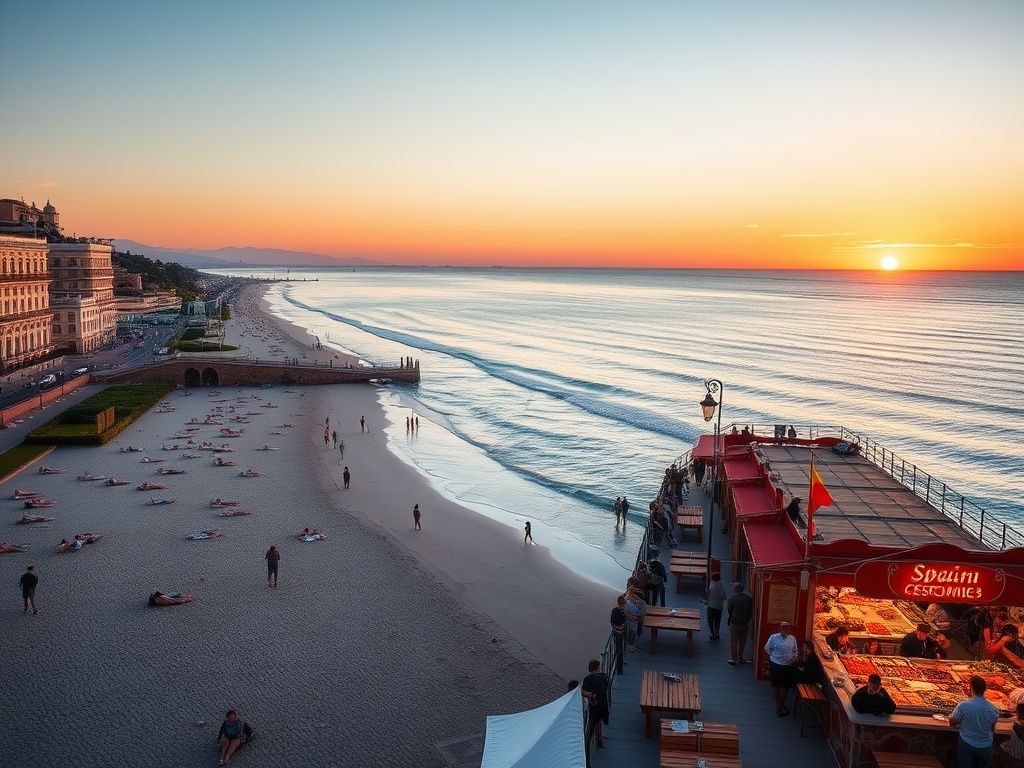Spain’s Economic Resurgence Post-Pandemic

Spain is experiencing a remarkable tourism revival in the aftermath of the pandemic, significantly outperforming its eurozone counterparts. According to the Spanish government, the nation’s economy grew by an impressive 3.2 percent last year, and there are optimistic expectations for an upward revision of this year’s growth forecast. This surge in economic activity is largely attributed to a booming tourism sector, robust agricultural output, and increasing exports, as noted by various analysts.
Last year, Spain welcomed approximately 94 million tourists, marking a 10 percent increase compared to 2023. The prestigious The Economist magazine recently recognized Spain as the best-performing economy in the world for 2024, out of 37 global economies. In stark contrast, other European nations have shown sluggish growth, with the UK projected to grow by only 0.9 percent, France by 1.1 percent, Italy at 0.5 percent, and Germany witnessing a contraction of 0.2 percent.
Expectations for sustained economic growth remain high, driven by consumer spending fueled by decreasing unemployment and an upsurge in investment. The influx of immigrants has played a pivotal role in bridging skill gaps, contributing to a remarkable drop in unemployment rates to 10.61 percent, which is the lowest it has been in 16 years.
In Andalusia, Playa de la Malagueta beach in Malaga has become a beloved destination for tourists. Local entrepreneur Adriana Montesdeoca, who operates a family-run farm in Tenerife that attracts visitors interested in goat’s milk production, emphasizes the advantages of Spain’s climate, safety, and affordability. She stated, “People feel that they can get more for their money out here. The other thing that you cannot control is sunshine, making it more appealing than those cold northern countries,” as she shared with The i Paper.
Tara Scarlata, who manages three tourist bars in Tenerife and is set to open a fourth, echoed these sentiments. “I think after Covid-19, people wanted to get out and have some fun. They seek an escape from their daily routines,” she remarked. However, she also pointed out the challenges posed by the rising cost of living in Spain, which has made it increasingly difficult for her staff to find affordable housing, particularly in the Canary Islands.
The impact of Brexit has also been felt, as it restricts British citizens from taking summer jobs in Spain, limiting their stay to 90 days within any 180-day period in the European Union. Paul Clavers, the chief travel officer at the online travel booking company eDreams ODIGEO, expressed optimism about the future, suggesting that 2025 could see another record-breaking year for Spanish tourism. He noted, “Travellers are increasingly looking for flexible and personalized options, and technology continues to revolutionize the way we plan and enjoy trips.”
Housing Crisis Amidst Tourism Growth
Despite the thriving tourism sector, Spain is grappling with a series of protests from residents who argue that the proliferation of holiday rentals has driven housing prices beyond the reach of locals. In response, the Spanish government recently proposed implementing a 100 percent tax on properties purchased by non-EU citizens and non-residents.
The housing crisis has emerged as a critical issue in Spain, as the country strives to strike a balance between promoting tourism—an essential pillar of its economy—and addressing concerns over escalating rents due to gentrification. Landlords are increasingly shifting from traditional long-term rentals to more lucrative short-term tourist accommodations, particularly in urban and coastal regions.
Analysts remain optimistic about the continuation of Spain’s economic boom, citing three primary drivers: private consumption, record tourism, and strong job creation, predominantly fueled by immigration. Javier Molina, an analyst with eToro, summarized the situation well, stating, “This momentum has been based on three main drivers: private consumption, record tourism, and strong job creation, mostly thanks to immigration.”




